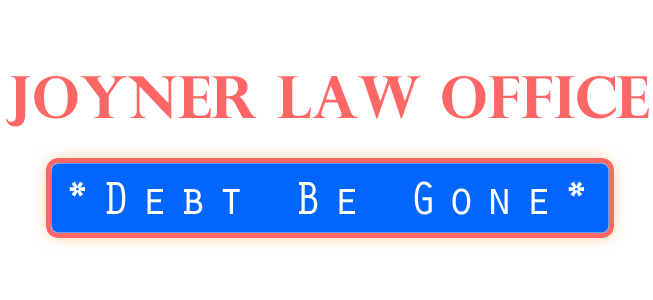Bankruptcy can be a difficult and overwhelming process, but in certain situations, it may be the best option for individuals struggling with overwhelming debt. In the state of Illinois, there are two primary bankruptcy options available for individuals seeking personal debt relief: Chapter 7 and Chapter 13.
Though Chapter 13 bankruptcy and Chapter 7 bankruptcy are two options that are available to some debtors, they carry different eligibility requirements, serve different purposes, may extend over different lengths of time typically, and possess other key differences. As such, it can be helpful to understand the two options a little bit better, as well as what makes them different from one another. What’s more, it can be important to consider additional options as alternatives to bankruptcy that debtors should first consider. Finally, it’s important for debtors to consult with a financial or legal expert, such as a financial advisor, debt relief expert, or bankruptcy attorney before making any major financial decisions.
Differences between Chapter 7 and Chapter 13 bankruptcy
Before diving into the basics of each bankruptcy option, it's important to understand the key differences between Chapter 7 and Chapter 13 bankruptcy. These differences include for example, eligibility requirements, the process and timeline involved, and even potential effects on credit scores. Important to the differences between chapters 7 and 13 bankruptcy is their respective intended purposes.
Key to Chapter 13 bankruptcy, for example, is a required repayment plan. While Chapter 13 bankruptcy requires debtors to develop a repayment plan, Chapter 7 bankruptcy does not. What’s more, in Chapter 7 bankruptcy, debtors may be allowed to discharge debts, while this is not the case in Chapter 13 bankruptcy. There are numerous differences between the two options, meaning that for some individuals, one may be much more suitable depending on the unique circumstances in question. In order to better understand some of these circumstances, let’s look at some of the differences between Chapter 7 and Chapter 13 bankruptcy processes and requirements.
Eligibility requirements
Chapter 7 bankruptcy is typically available to individuals with limited income and assets, while Chapter 13 bankruptcy is more suitable for individuals with a steady income who can repay a portion of their debts over time. In fact, Chapter 13 bankruptcy may also be referred to as a “wage earner's plan.” As such, it can be helpful to discuss your situation with a professional, such as a bankruptcy attorney, who can help you better understand the varying eligibility requirements associated with different debt relief options.
Process and timeline
Chapter 7 bankruptcy is a relatively quick process, often lasting around three to six months—though, depending on the circumstances involved and the complexity of an individual case, this amount of time can vary—while Chapter 13 bankruptcy involves a repayment plan that can last three to five years.
In the case of Chapter 13 bankruptcy, a debtor’s monthly income can be an important factor; if monthly income is above the state median, the plan is generally required to be five years, while if the debtor’s monthly income is below the state median, the plan will generally take three years, though the court can approve a longer period if they find “cause” to.
Debt discharge
In Chapter 7 bankruptcy, eligible debts can be discharged entirely, providing what can essentially be considered a fresh start for some individuals. On the other hand, Chapter 13 bankruptcy allows individuals to catch up on missed payments and potentially reduce the overall amount of debt owed, but not all debts may be discharged. As such, each option may provide certain advantages or disadvantages regarding debts, depending on the debtor’s unique circumstances and needs.
Advantages of filing for Chapter 7 bankruptcy
Chapter 7 bankruptcy offers several potential advantages for individuals who qualify. It’s important to remember, though, that what may be an advantage to one individual, may be a disadvantage to others. We’ll explore some of the potential benefits of filing for Chapter 7 bankruptcy, but it’s important to note that debtors should consult with a financial or legal expert, or both, such as a licensed financial advisor, a bankruptcy attorney, or both.
Liquidation of assets
One of the notable potential benefits of Chapter 7 bankruptcy is the potential liquidation of non-exempt assets to repay creditors. This might allow some individuals to start fresh without the burden of excessive debt. For some debtors, this may be a viable path forward, allowing them to quickly pay off debts. For others, it may not be the ideal choice, as the loss of property is often associated with filing for Chapter 7 bankruptcy.
Faster debt relief
Compared to Chapter 13 bankruptcy, Chapter 7 often offers a much quicker path to debt relief, typically within a few months. While Chapter 13 offers a litany of its own potential advantages, Chapter 13 bankruptcy can play out for years, while the process of Chapter 7 bankruptcy can be much shorter. For some individuals, faster debt relief may be appealing. Still, it’s important to note that any bankruptcy filing can affect one’s credit score, and remember that Chapter 7 bankruptcy can affect one’s credit score for even longer than Chapter 13 might.
No repayment plan
Unlike Chapter 13 bankruptcy, Chapter 7 does not require individuals to create and follow a repayment plan. This can provide a sense of freedom and relief, especially for those with limited income. However, each individual will need to consider their unique circumstances.
Advantages of filing for Chapter 13 bankruptcy
If Chapter 7 bankruptcy is not an option or does not align with an individual's financial situation, Chapter 13 bankruptcy offers several advantages. Again, debtors should first consult with a financial or legal expert in order to understand their options, but here are some potential advantages of filing for Chapter 13 bankruptcy for those who qualify and are interested:
Protection of assets
Chapter 13 bankruptcy allows individuals to keep their assets while they work towards repaying their debts. This can be particularly beneficial for those who have valuable assets they wish to retain. While for some debtors, Chapter 7 may seem appealing because it can result in fast debt repayment, some debtors may prioritize preserving their ownership of property.
Ability to catch up on missed payments
If an individual is behind on mortgage or car loan payments, Chapter 13 bankruptcy provides an opportunity to catch up on these missed payments over time, preventing foreclosure or repossession.
Flexible repayment plan
Chapter 13 bankruptcy involves the creation of a manageable repayment plan, based on an individual's income and expenses. This allows individuals to gradually repay their debts while maintaining a reasonable standard of living.
The Bottom Line
Whether Chapter 13 or Chapter 7 bankruptcy is right for you may depend on numerous factors. It can be extremely helpful and worthwhile to consult with a financial or legal expert or even both. An experienced bankruptcy attorney will be able to help you decide whether bankruptcy is right for you, and if so, whether filing for Chapter 13 bankruptcy or filing for Chapter 7 bankruptcy might be a viable option for you. A number of factors can influence whether or not these may be viable options for you, including what your current income is, the level of debt that you currently owe, and your goals. While Chapter 13 and Chapter 7 bankruptcy are both types of bankruptcy that individuals can file for, there are a number of considerations to first take into account.
If you’re looking for help navigating the complex process of debt management and relief, don’t hesitate to reach out today. At Joyner Law Office, we have the experience and resolve to help our clients find the best possible solutions in their unique circumstances. We know that dealing with debt can be a stressful time and that our clients are taking on uniquely daunting challenges. Managing debt can be an intimidating battle, but you don’t need to navigate it alone. We’re here to help. To learn more, be sure to visit us online, or reach out to give us a call.

